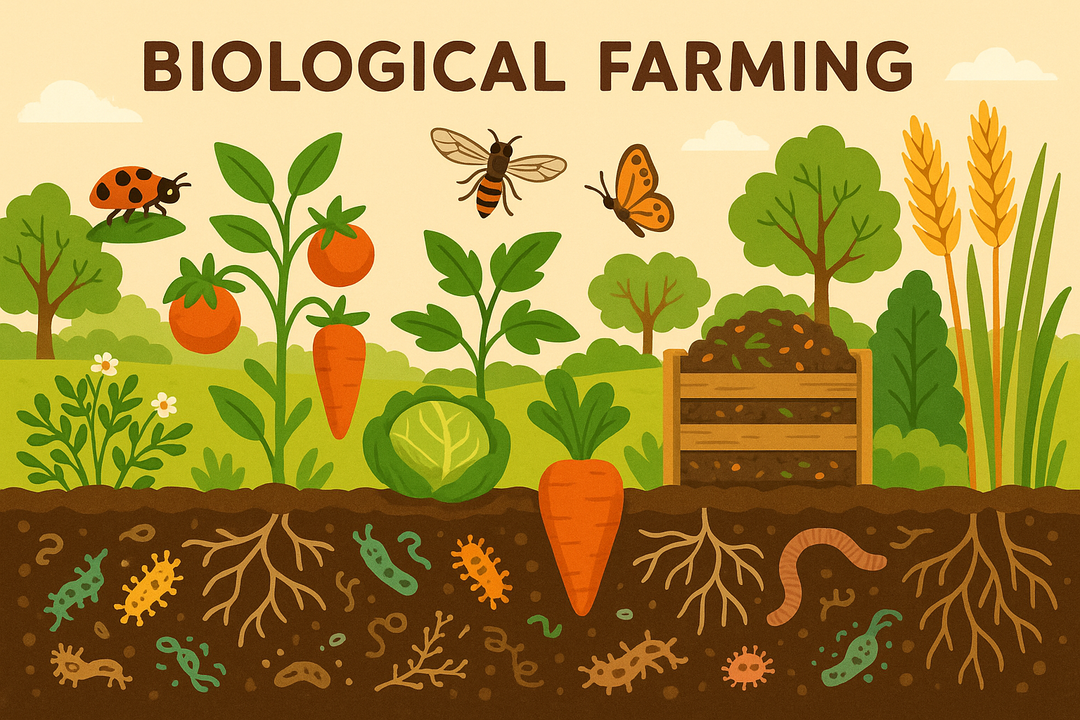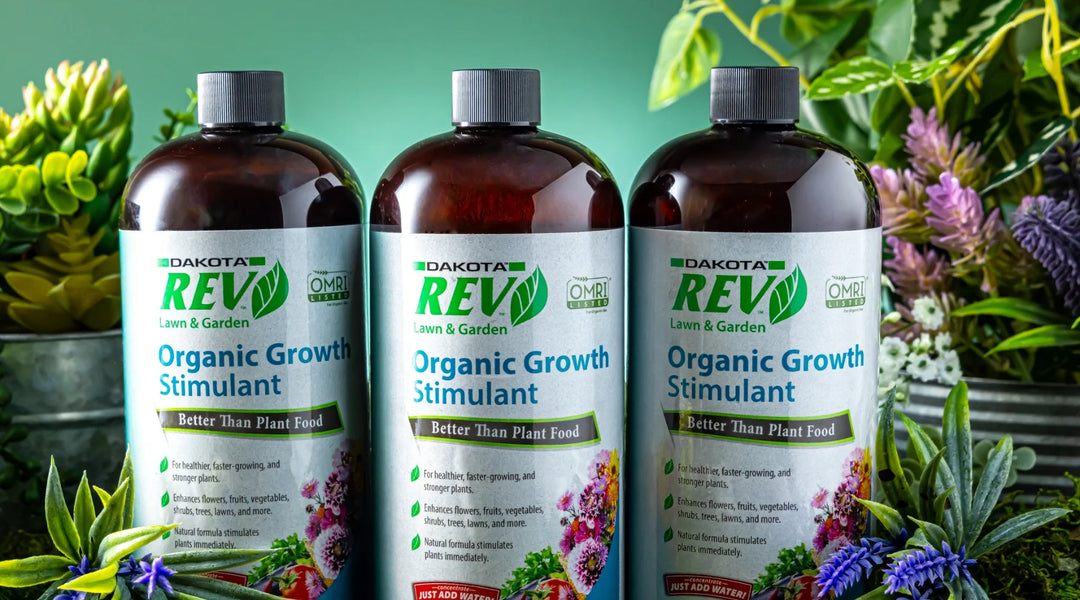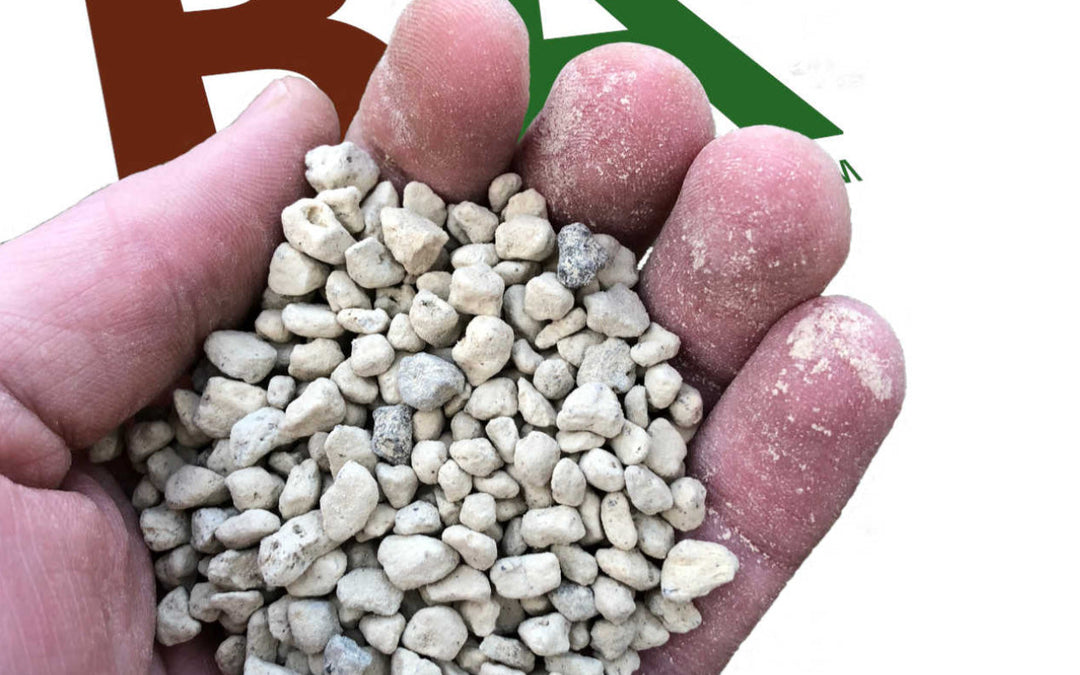Living Organic Soil: The Green Solution to Common Gardening Problems

Some gardening problems have an obvious solution. For instance, too little water can impact the growth and production of our plants and vegetables. Solving the problem with the right amount of water usually sorts things out.
Other problems are harder to solve. For example, insects may eat our flowers and buds. It can be hard to find the right organic insecticide that will relieve our plants from their unwelcome visitors. The same is true of weeds. Weeds invading and infecting our lawn make it look miserable. How can you take them out and make your lawn look pristine again?
And some problems look downright impossible. You may have a great crop yield one year and a lousy one the next, even though you did exactly the same things. We may check the air, the soil, the plant itself, and yet the solution eludes us. How can you fix something when you can’t even begin to understand the problem?
What is Living Organic Soil?
In industrial agriculture, the focus is placed on feeding the plant with chemical fertilizers and controlling weeds and pests with herbicides and pesticides. Chemical fertilizers and pesticides are used to solve problems. However, these seep into the soil, water, and produce, contaminating them.
Now, there is a better way—an organic way that will both increase your crop yield and restore your plants’ health by treating the root cause of your problems instead of the symptoms.
This way focuses not on the plant or the produce but on the soil where they grow. The goal is to restore the soil to its natural state, where it is full of nutrients, trace minerals and teaming with microbes. We call this soil, the living soil. Essentially, it’s all about returning precious resources back into the infrastructure of your soil.
Healthy Plants Need Healthy Soil
Rocky Mountain BioAg researches and distributes the best naturally fermented microbial inoculants and probiotics. By adding organic fertilizers including fish fertilizer, trace mineral rock dust, and fighting weeds and pests with organic weed killers and pest-repellents, we can return your soil back to life and turn it from depleted dirt to living, organic soil.
All of the natural and organic products we distribute help in building living organic soil by providing proper probiotic foods and minerals to the soil. Healthy soil will need fewer fertilizers and water to naturally increase crop yields. It will grow healthier nutrient-dense plants and produce.
By investing in your soil instead of your plants, you will enjoy bountiful crops, just like Mother Earth originally intended. Even better, benefits will continue to accrue with each year you use organic and biological amendments.
How Can Organic, Living Soil Help with These Common Gardening Problems?
- Lower crop production
- Weak plants
- Plants with low sun exposure
- Plants competing for nutrients
- New plants with higher nutrient needs
- Yellow of Brown leaves
Crop Production is Lower
Having a bountiful crop is proof of a successful planting season. Plump vegetables hanging from their branches and fleshy fruit dangling from the trees are what every gardener dreams of.
And yet, sometimes the crop production is lower than expected. You may have fewer vegetables or fruit or they might be smaller in size and looking, well, less than appetizing.
If you have sluggish plant growth and low crop production, first take a look at your soil. After all, that’s where your plant is getting all its food and life from.
All soils need healthy microbe and fungi populations that cycle organic nutrients from the soil and provide them to plants in usable forms for growth and production. When the microbes die, they release these bio-available nutrients and minerals into the soil. Then, the plants can absorb these rich nutrients through their roots to feed themselves. These nutrients and minerals are essential for robust and sustained plant growth and that is what is missing from your plants.
Feed active bacteria in your soil, thus helping enrich it and make it nutritious for your plants and trees.
Plants Seem Weak
Sometimes plants seem weak. Their leaves are small and wilting and they look a little bit shabby no matter how much attention has been paid to selecting the right seed.
Even after spreading mulch, adding the appropriate fertilizer, and installing a proper watering system, your plants may have limp leaves. They may not be growing as well as they should. Even after spraying for invaders like aphids and snails, their flowers may look stunted and listless.
When our plants seem weak, this means that the soil foundation does not provide enough of the proper nutrients, trace minerals, and vitamins.
The levels of active bacteria and fungi in the soil are usually quite low and plants are not getting enough strength to grow. Nine times out of ten, a biological soil analysis shows that there is not enough active life in the soil.
As long as your soil contains proper amounts of macro- and micro-elements including vitamins, then adding beneficial soil and plant microbes to the soil will help the plants utilize these nutrients and grow properly.
Biotic fertilizers feed active microbes which are necessary to a plants’ feeding system. To ensure your soil has the proper microbes you just add Quantum Growth to dechlorinated water and integrate it into your growing system. And then you watch your plants grow robust and beautiful. As simple as that!Plants are Not Getting Enough Sunshine
We always aspire to plant our flowers, shrubs, and trees in the most appropriate location. Usually, that means a lot of sunshine to allow for steady growth.
Yet, sometimes our garden or landscape doesn’t have the necessary space or we have planted our bushes and plants in spaces where sunlight is limited. We don’t want to dig them up, endangering their survival. But we want them to thrive.
Spraying them with naturally fermented photosynthetic microbes will increase their photosynthetic abilities, since the bacteria act as billions of tiny solar panels capturing sunshine. Your plants will take in more light energy and will grow greener, bigger leaves and more beautiful flowers and produce.
Plants Competing for Nutrients
Planting shrubs, flowers, and plants too close to each other may cause them to compete for nutrients. There is only so much that the soil can offer and plants are trying to get the most out of it. That means that some plants may suffer and look weak and sickly. Their growth may be sluggish.
You need a way to improve the quantity and quality of nutrients in the soil, so that there is enough for everyone.
By adding bio-available minerals and organic fertilizers to your soil, you will increase the availability of nutrients and your plants will find more food to feed themselves. Those unseen giants (microbes) will do wonders in your garden!
New Plants Requiring More Nutrients Than Established Ones
Planting new plants, bushes, trees, and vegetables in our garden is exciting. The sheer anticipation of all the beautiful flowers, blossoms, fruits, and vegetables to be gathered makes the effort worthwhile.
But new plants require more nutrients and water than established ones. Their root systems are small and shallow, needing extra care and nutrients for their roots to expand. Fertilizers like nitrogen, phosphorus, and potassium are not always the best solution.
If your new plants look weak and small, you need to increase the necessary organic nutrients in the soil to feed them accurately. Organic fertilizers help new plants find the quality and quantity of necessary nutrients to grow and blossom.
Plants with Yellow or Brown Leaves
We have all seen them in our gardens: plants with yellow or brown leaves, looking wilted and skinny. The first solution is to put in more fertilizer or iron, trying to pop them up, but this makes them look even more faint and miserable.
Adding more fertilizers frequently gives us the opposite results: flowers that display no growth, with drooping brown leaves.
Most gardeners use chemical fertilizers to improve their plants’ health. Most fertilizers include nitrogen (N), potassium (P), and phosphorus (K) or (NPK). If you boost your plants with a natural microbial inoculant like Quantum Growth, then you will need fewer fertilizers. The active bacteria contained in Quantum Growth make fertilizers more efficient, meaning that you need to add a smaller quantity of them. With Quantum Growth you are getting healthier plants with fewer fertilizers and you are also helping the environment.
What’s the Point of Producing Fruit and Vegetables if They Are Not Organic?
It is easy enough to buy fruit and vegetables at the greengrocers. The reason most amateur gardeners delight in planting their own crops is that they want them to be organic and pesticide-free. How can you make sure your plants, trees, and vegetables are growing healthy and plentiful without fighting pests and diseases with insecticides and pesticides? And how can you get the most beautiful and full fruit and vegetables from your plants?
If you grow your vegetables and fruit organically, you can use organic weed killers to control the unwanted weeds in your garden. Organic insecticide fungicide bio stimulants are also a great addition to keeping organic. The lack of any harsh chemicals, pesticides, or insecticides means that your gardening efforts can remain organic and wholesome.
Cannabis Growers Who Want to Grow the Cleanest Hemp Ever
Cannabis growers want the cleanest and healthiest industrial hemp. But hemp is known for helping clean up soils through bioremediation. When planting hemp, its deep expansive roots clean up the soil by sucking up heavy metals and harmful pesticides.
So, hemp growers are constantly looking for a way to increase their production without fertilizers and other harmful supplements. Growing organic hemp increases the quality of the end-product and adds value to the crop
This can be especially useful to cannabis growers. Low toxicity, organic pesticides can help with any garden to control unwanted non-beneficial pest and diseases! If you combine their use with a biotic, nutrition-enabling fertilizer your plants can have the proper nutrition and be protected from unwanted pests and diseases. This way, hemp plants get all the necessary nutrients from the soil and protection from organic pesticides without adding anything harmful to the hemp crop.
Tired of weak plants, small fruits, and low crop yields? Bring your garden back to life with Rocky Mountain BioAg’s range of biological products. Our products are biological… beyond organic!












Leave a comment